
Beyond’s Chinese subsidiary “Beyond Technology Shenzhen Co., Ltd.” officially started business in China on February 19, 2024.
This time, I conducted an exclusive interview with two members of Beyond Technology Shenzhen Co., Ltd., Mr. Ohara and Mr. Takashiro.
◆Interviewer: Asaka Komatsu (Beyond Publicity Department)

Table of Contents
Ohara: Around 2018, Chinese companies such as Alibaba Cloud began to enter the Japanese market one after another. When we felt the momentum of the development of Chinese IT services, Beyond also began to consider entering the Chinese market. This was the opportunity for Beyond to enter the Chinese market.
In preparation for entering the Chinese market, the first thing we did was to visit various parts of China. We conducted market research through interviews and meetings with local Chinese companies and Japanese companies that do business in China like us. At the same time, we are gradually studying how to open a local subsidiary in China and preparing for the opening of a subsidiary.
However, due to the epidemic, we are temporarily unable to go to China, and beyond’s investigation and communication in China has stagnated. Even in the face of such problems, we want to move forward as much as possible, so we collect information and look for partners on the Internet.
Gao Cheng: My impression of Shenzhen and Guangdong, where we are located, is that there are many manufacturing companies, but there are not many IT companies that focus on server infrastructure as our main business. In this case, how should beyond’s business be carried out? What is the demand on the market side? We are carrying out activities while thinking about these topics.
Ohara: First of all, Beyond is developing a business called “MSP” (managed service provider) in three countries: Japan, China, and Canada, providing customers with services such as building and operating cloud computing and servers such as AWS (Amazon Web Services) or Alibaba Cloud.
Although the Chinese subsidiary Beyond is an extension of the Japanese company’s business. But “Can the business that works in Japan also work smoothly in China and other places overseas?” This is another matter.
I think localization is necessary. For example, we are constantly trying to adapt to the culture and business habits of China and other places overseas, understand market needs, etc., and explore the direction of progress.
Ohara: In Japan, when we meet with customers for the first time, we usually exchange business cards with customers and exchange information through face-to-face conversations. It is common in Japan to maintain business relationships when the other party has relevant needs and thinks of us.
However, in China, I feel that the culture of acquaintances such as buying things or conducting transactions from companies you know is very strong, and this difference in business habits also makes us feel difficult. On the other hand, due to the popularity of IT services and apps, most things can be done on WeChat and its mini-programs, which is very convenient, which is very different from Japan.
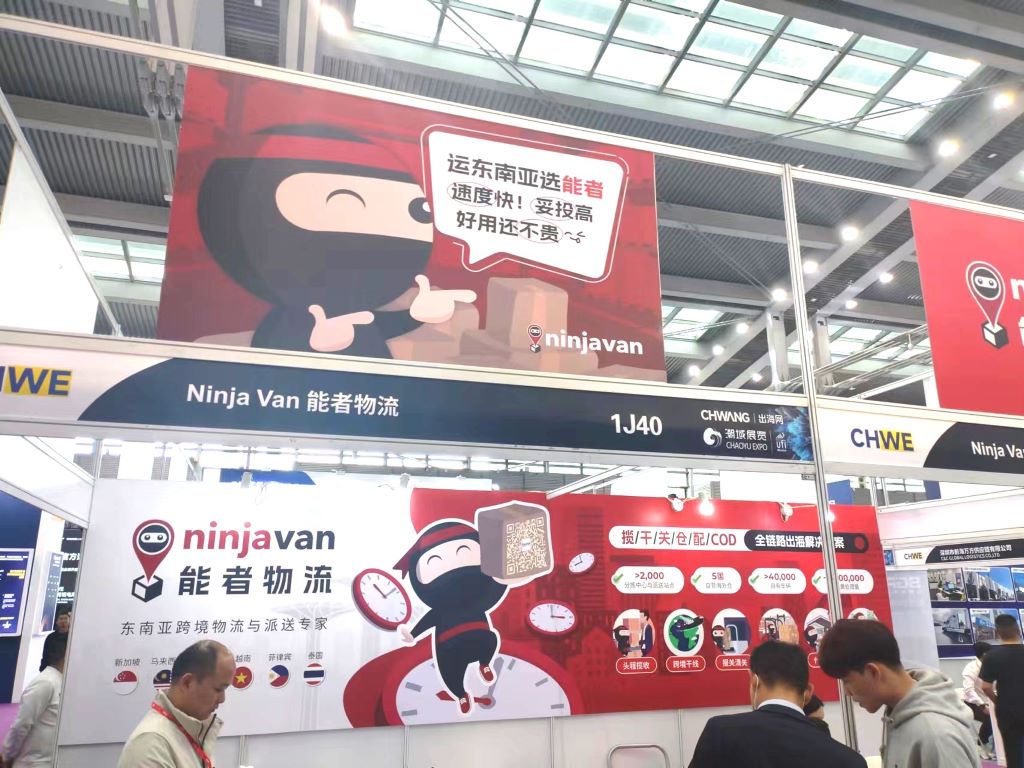
<Photo taken from the 3rd CHWE World Cross-Border EC Exhibition >
Ohara: In China, not only WeChat, but smartphones are also absolutely indispensable. In fact, even in life, you can’t do anything without a smartphone. Even in business activities, WeChat is basically used for communication, and more than 90% of the work can be done on WeChat. There are many people who don’t have paper business cards, but exchange contact information through WeChat to greet and communicate.
Ohara: Although China also has paper business cards, they are not as common as in Japan. In addition, when exchanging contact information using WeChat, you can send your electronic business card to the other party. You can also make electronic business cards on WeChat mini-programs. Under this premise, people basically don’t exchange paper business cards anymore.
Takashiro: When I was still in Japan, my friends talked to me about the differences in business between China and Japan. What impressed me most was the “sense of speed”. Before I went to China, I had always heard that people in China contacted and responded to things very quickly. After working in China, I really felt the speed of people’s response. But since there is no reference for comparison, it is just my personal feeling. However, in daily work, I do feel that the people I deal with respond very quickly.
For example, regarding quality, the basic thinking of the Japanese is “submit it to the customer as close to 100% as possible.” In China, I feel that “the work is submitted to the client when it is 50%-60% complete, and then the two sides start to revise it to 80% after communication, and after several rounds of communication, it reaches 100%”.
In terms of speed, it is indeed very fast, and it feels like things are moving forward. This is very different from the business habits and work progress in Japan.
Takashiro: Yes. Although in Japan, I can also learn about China through YouTube and Google searches, or listen to friends’ stories. But I can only truly experience these things after I actually live, work and experience in China.
Takashiro: I think there is such a possibility. We will estimate the plan that “this should be the best for the customer” based on our common sense, and then advance the work according to our planned content.
However, if we fail to realize that the best plan we expect is not necessarily the best in the customer’s perception, this difference will be reflected in the sense of speed. In this regard, I think it is very necessary to adapt to the culture of this country in action.
Ohara: In Japan, AWS (Amazon Web Services) accounts for the majority of the market share, followed by Azure (Microsoft Cloud) and GCP (Google Cloud). In China, Alibaba Cloud accounts for the majority of the market share, followed by cloud services such as Huawei Cloud and Tencent Cloud. Although AWS and Azure also have market share in China, they have not reached the level of overwhelming share like in Japan.
Ohara: Not only Alibaba Cloud, but also other cloud computing such as Huawei Cloud and Tencent Cloud, as well as other cloud computing and hosting services provided by local data center operators in China. Chinese customers also use different server environments according to their own needs. So it varies from person to person, and it is difficult to generalize.
Ohara: Beyond has multi-cloud capabilities and provides infrastructure construction/operation services using various cloud computing platforms including AWS and Alibaba Cloud. Beyond’s Chinese subsidiary also has the same mechanism, which allows it to build and operate cloud computing services according to the needs of Chinese customers, regardless of which cloud computing service is used.
In addition, since AWS China only supports companies with legal entities in China to open and use accounts, Japanese companies that do not have legal entities in China cannot use it even if they want to. In response to this, Beyond has established a legal entity in China and can use AWS China, so it can also provide technical support for AWS China.
Takashiro: Previously, I attended the Huawei Cloud APAC Partner Connection Summit held in Dongguan, China. When I talked to many partners like Beyond at the event, I found that many of them provide services such as MSP specifically for the industry.
For example, I heard that some companies are building and operating infrastructure for FinTech (fintech) and AI-related fields and industries. Indeed, focusing on only a certain field and industry can greatly improve the management and operation efficiency within the company. Because even if the details are different, similar technologies can be used, and it is easier to leave common knowledge within the company.
At present, Beyond’s Chinese subsidiary does not specifically target any specific industry. The sales team and engineering team will cooperate with customers’ cases and projects to conduct business. But I have the impression that many overseas suppliers will focus on a specific industry to carry out MSP (management service provider) services, which is different from Beyond.
Of course, focusing on specific industries and fields to conduct business can reduce the full competition with other supplier companies, and it also helps to differentiate and stand out in the competition.
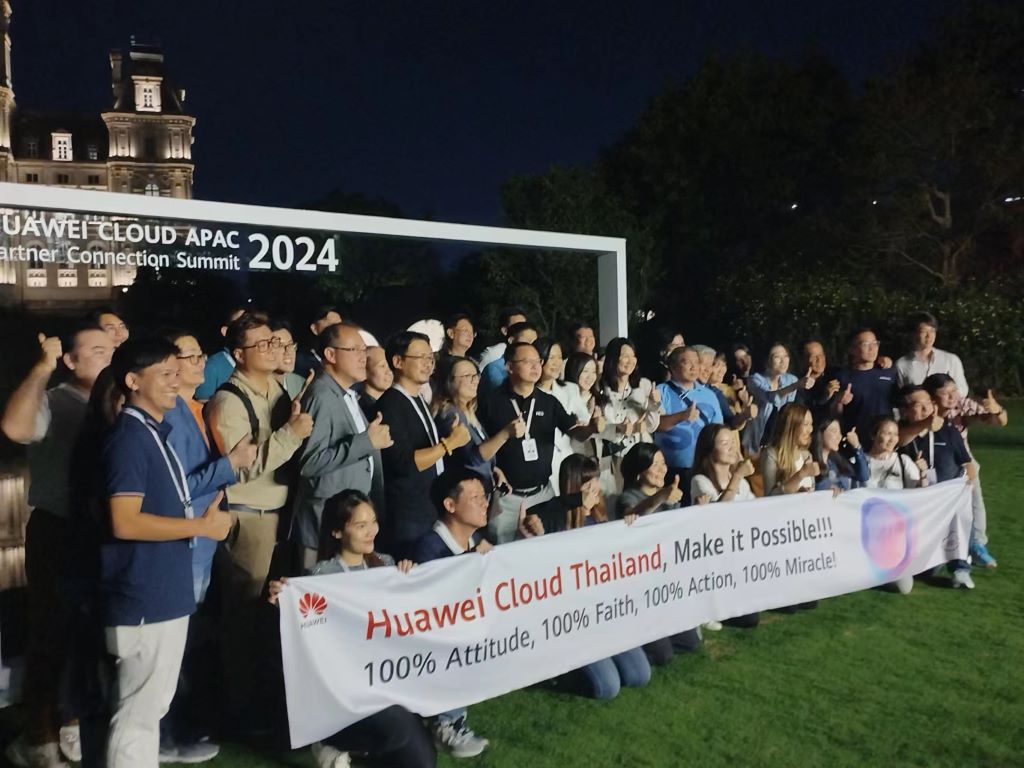
< A group of Huawei Cloud partners came from Thailand>

< Huawei Cloud partner exchange event >
Ohara: Currently, we mainly conduct business with Japanese corporate customers. When we introduce Beyond’s technology and services, we often hear from them that there are still many problems with the systems of local Chinese legal entities.
In addition, during the conversation, I learned that many Japanese companies have the situation that “we can use AWS freely to some extent, but we are not familiar with Chinese cloud computing such as Alibaba Cloud”, and there may be surprisingly few Japanese IT suppliers that can flexibly respond to these problems. Faced with this situation, I feel that there should be a lot of Japanese companies who think “it would be great if these problems could be handed over to Japanese IT suppliers who understand Chinese cloud computing technology”.
Takashiro: In addition to providing professional technical support, Beyond has another major strength, that is, we have engineers who are proficient in server technology on duty 24 hours a day, 365 days a year, who can respond and solve customer problems around the clock and throughout the year.
The situation I am talking about below may not be limited to China. When communicating with others, I often hear that some companies claim to respond 24 hours a day, 365 days a year, but in fact, “inquiries and acceptance are responded to 24 hours a day, but the actual response is implemented on the next working day” and “server operation and maintenance related business is outsourced to other companies.”
Unlike this situation, in Beyond, Japan, our engineers directly connect with customers 24 hours a day, 365 days a year to provide technical service support, so we have received a lot of praise from customers. When we started our business in China, this also received very good feedback.
Takashiro: I think so. Although the Chinese market is fiercely competitive in terms of low prices, Beyond has this advantage, and I think it is an advantage that can prove the value of our services.
Takashiro: I think that not only the IT service industry, but any field and industry will eventually become a price competition. This may not be a big deal for the party that purchases and uses the service, but for the service provider, how to view and provide prices is particularly important.
Gao Cheng: First of all, we have established a legal person in China, which is a crucial thing. Through actual experience in China and exposure to information about China, we have learned a lot of knowledge. Our advantage is that we can provide advantageous information, not just second-hand information obtained through news and the Internet.
If you are not in the local area, it is often difficult to understand the situation in China, so we will propose this matter from China. This will become a major advantage for us to better stand in the customer’s perspective and consider and solve problems from their own perspective.
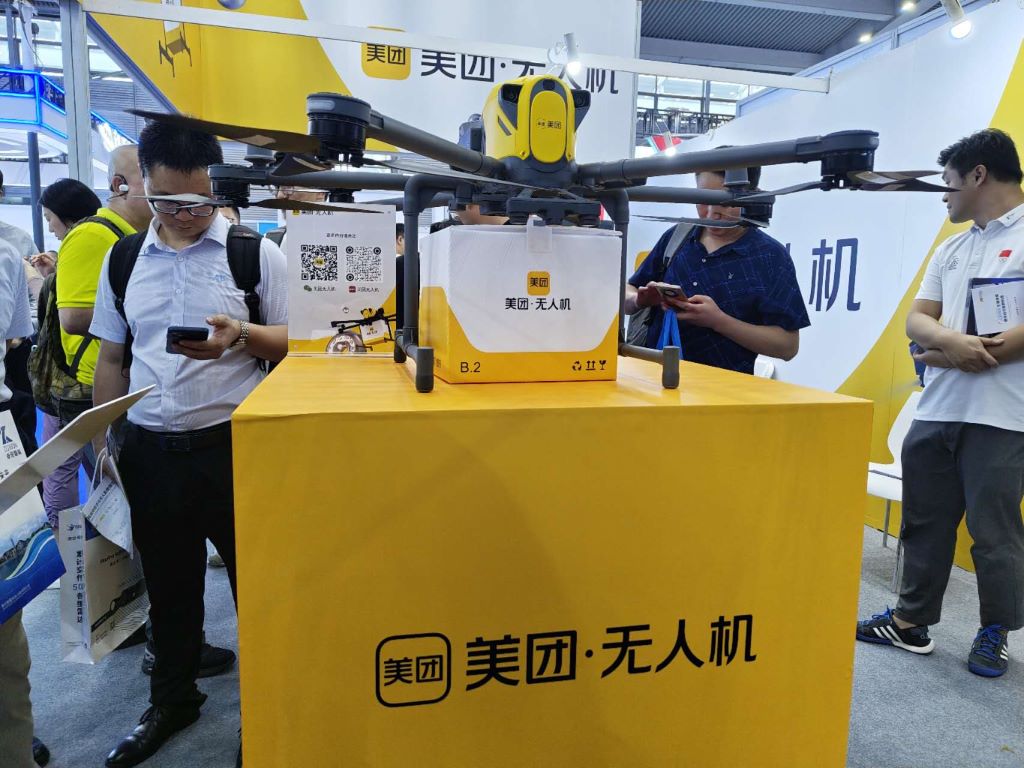
< “Meituan Drone” (food delivery drone) exhibited at UASexpo2024>
Takashiro: Yes. If we can make customers more confident in our service, we will be very happy.
Ohara: What is unique about Beyond’s subsidiary, B.U.D. Technology, is that it is located in Shenzhen. Shenzhen is known as the place of technological revolution in Asia, which allows us to quickly keep up with various new technologies and new concepts.
ItsMost Japanese IT suppliers choose Shanghai or Dalian, which are close to Japan, as their bases. But I don’t know if it’s because there are more hardware companies in Shenzhen, but I feel that there are fewer Japanese IT companies like Beyond that provide server and software services. So Beyond is also very advantageous in this regard.
The advantage of being in Shenzhen is that we can provide regional IT technical support to Japanese companies in Guangdong Province that have IT-related problems, and we can also expand our business scope by developing in Hong Kong SAR, which is geographically close to Shenzhen.
In addition, in addition to providing MSP services for cloud computing in China, we also provide Web system development and Chinese website production, WeChat app development and other services. We work closely with Beyond’s Japanese head office to jointly promote cases and projects. This is also a point of peace of mind for customers.
Ohara: Yes. It’s the same with opening a subsidiary in China. There are many problems that we discovered after we started working and living in China. In particular, network problems have been bothering us for a long time. It is precisely because of this personal experience that we started to launch a SIM service that can be used in Japan, China, and overseas.
“What we are troubled by should also be needed in the world” with such a thought, we launched this service. In fact, this SIM is not only used by us, but also by other members of Beyond when traveling and on business trips overseas.
◆ SIM card service “beyond SIM”
◆ China SIM service “Choco SIM – powered by beyond -”
Ohara: Beyond’s MSP is to provide 24/7/365 non-stop support for customers’ systems and applications to ensure their stable operation.
However, to maintain 24/7/365 high-quality technical support, the barrier of “nighttime operation and maintenance” cannot be avoided anyway. It is obviously difficult to rely on personnel from a single country to maintain stable technical support at all times.
Beyond has a wholly-owned subsidiary in North America (Canada), which uses the time difference between day and night to ensure high-quality technical support. This is a major advantage of Beyond. There are very few IT suppliers with such an operating mechanism, not only in China, but also in Japan.
Gao Cheng: In addition to barrier-free communication in terms of language, the special advantage we want to show to customers of Japanese companies in China is that we provide the same high-quality service as when we are working in Japan in a state close to that of working in Japan. In a sense, the difference between us and local IT suppliers in China is that we cooperate with customers in a Japanese way.
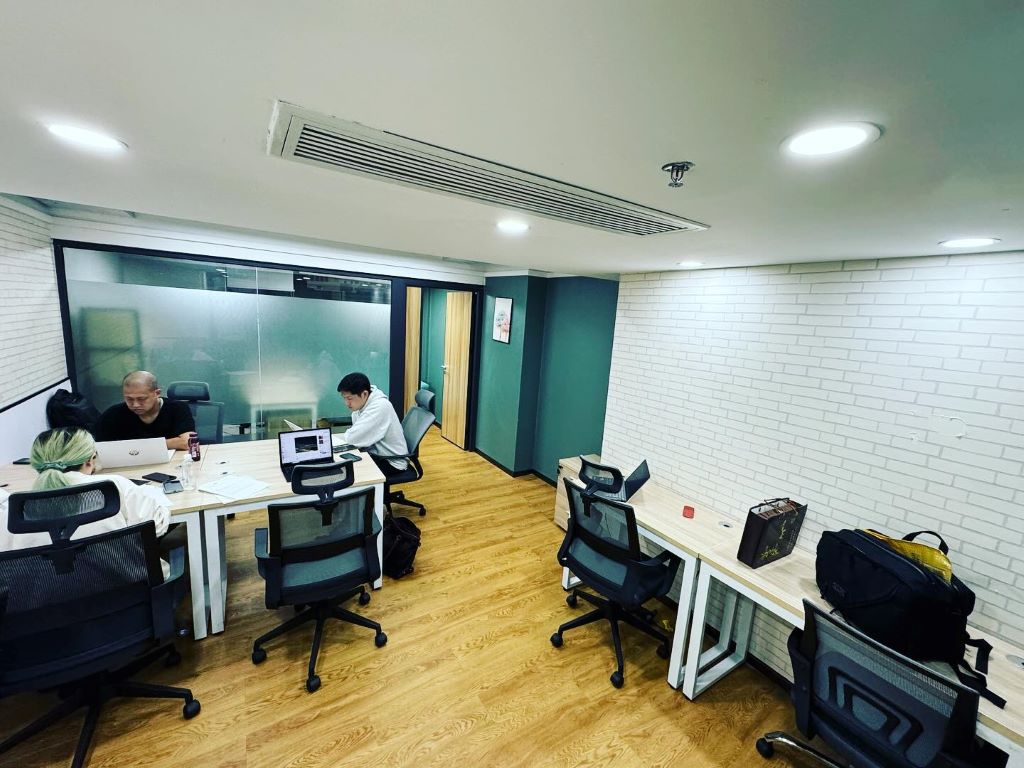
< Inside the office of Beyond Technology >
Ohara: In the future, I would like to develop a business that can represent Beyond Technology’s business. In addition, it would be very interesting if the business developed by Beyond Technology could enter the Japanese market in reverse. In addition, as the domestic market in China expands, we also hope to provide services in Southeast Asia and other countries with Shenzhen as a base.
Ohara: Shenzhen has convenient transportation to Southeast Asian countries, so business cooperation involving these countries and regions is also something we will consider in the future.
In Southeast Asia, where the economy is developing rapidly, although some things are not exactly the same as in China, there are still things in common. In terms of culture and time difference, I feel that it would be easier for Japanese people to develop business there than in other countries.
In addition, due to the low yen exchange rate, the number of foreign tourists entering Japan has increased significantly recently. Not only for future development, but also to promote exchanges between China and Japan and attract more overseas tourists, we also hope to develop WeChat mini-programs for Japanese companies.
Ohara: “Even in China, Beyond’s MSP”, please be sure to try our Beyond service!
Takashiro: Beyond has many skilled engineers who are quick to deal with problems and have strong adaptability. Even in China, please feel free to leave the server and infrastructure-related work to us!
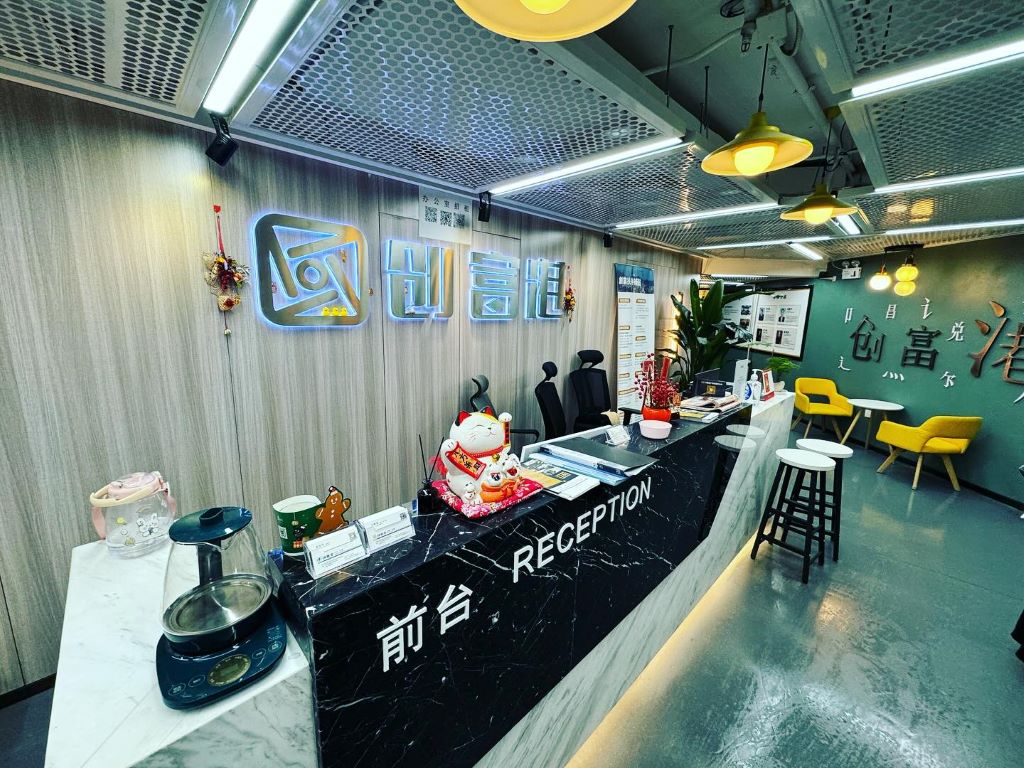
< Front desk of the rental office where Beyond Technology is located >
The above is the interview with the Beyond subsidiary in China.
After listening to the two people’s stories, China, which was previously unimaginable, began to become clearer in their real voices. Of course, this is only a small part of the content about China and Beyond. In order to deepen understanding, I will continue to follow up with more information in the future.
The establishment of the Chinese subsidiary Beyond Technology will undoubtedly have a significant impact on the new future that Beyond will create next. Please continue to pay attention to Beyond’s Chinese subsidiary – Beyond Technology.
Beyond and BID Technology can provide technical support for cloud computing/server construction and operation and maintenance for Japanese companies and local companies operating in China.
If you are a Japanese company customer in China and have any cloud computing/server and system needs, please feel free to contact us.
◆ Interviewer: Asaka Komatsu (Beyond Public Relations Department)
● About Beyond Technology Shenzhen Co., Ltd. (https://beyond-shenzhen.cn)
※ English name: Beyond Technology Shenzhen Co., Ltd.
Chairman : Masahiro Haraoka
General Manager : Yuya Ohara
Establishment : August 31, 2023
Capital : 20 million yen
Address : 5th Floor, Building 1, Oriental Plaza, No. 1072 Jianshe Road, Luohu District, Shenzhen, Guangdong Province
Business Scope : Cloud computing / Server & system development / Sino-Japanese IT business support
● Main services
◇ China cloud computing / server construction and operation and maintenance
◇ WeChat mini program development
◇ AWS China region cloud computing construction, operation and maintenance, and supervision services
◇ Alibaba Cloud computing construction, operation and maintenance, and supervision services
◇ China SIM service “Choco SIM – powered by beyond -“(Japanese version)
◇ China Server Security Law Level Protection System Certification Support
◇ China-Japan IT Business Support
▼ Company WeChat Official Account▼

▼ Contact person in charge WeChat ID ▼


 Follow us on WeChat
Follow us on WeChat